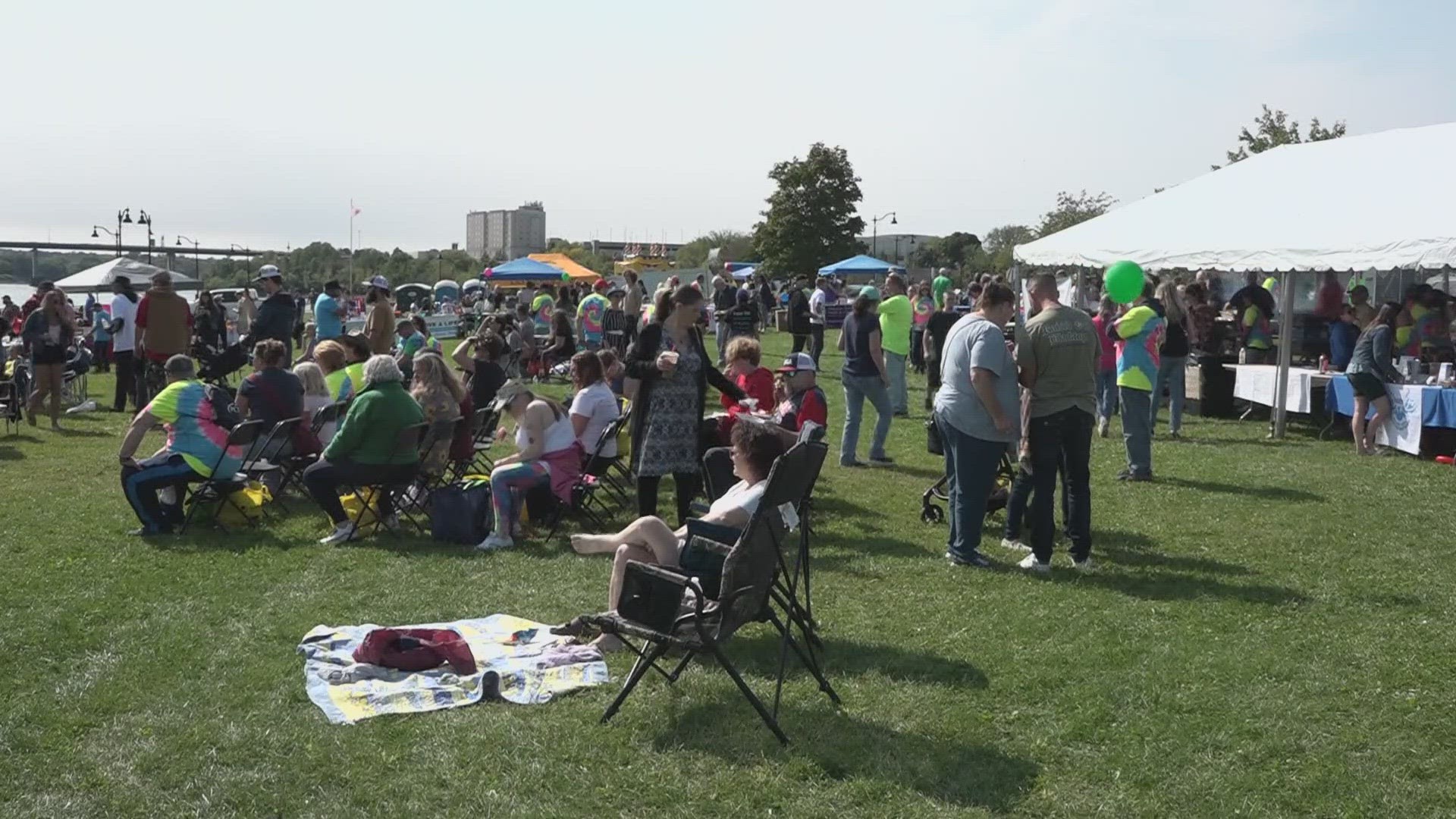BANGOR, Maine — Tie-dyed shirts and live music filled the Bangor Waterfront on Saturday, as the Recovery Palooza returned to the city for another year.
The event, which aims to celebrate sobriety and connect those still struggling with substance use disorder, was organized by the Bangor Area Recovery Network as equal parts celebration and safe haven.
“We have a saying in recovery: You stay connected, you stay protected,” Joseph Hartel, the organization’s volunteer coordinator, said Sunday. “If we don’t come together to fight this problem, we’re not going to make the progress we want.”
Booths from local recovery nonprofits lined the waterfront and free hot dogs sizzled on the grill. It was an open invitation for those seeking support and those ready to give it, like Jason Gammon, a peer-support specialist who overcame addiction himself.
“The most important part of recovery was community, feeling a part of something greater than myself,” Gammon said.
But despite the pomp and cheer of the Palooza, the fight against substance use disorder is getting more challenging in the state.
Highly addictive and inexpensive synthetic opioids have flooded Maine, resulting in a historically high overdose rate.
State data compiled by the Margaret Chase Smith Policy Center at the University of Maine shows 366 fatal overdoses (confirmed and suspected) between January and July of 2023, which is about 300 more than in the entire year of 2000, before fentanyl was widely trafficked.
Despite the urgency to prevent future overdoses, advocates at Saturday’s event cautioned that recovery is a long and drawn-out process instead of a quick fix.
“Everybody wants recovery now,” Heidi Wheaton, executive director of Breaking the Cycle, a woman’s recovery organization based in Millinocket, said. “And to be able to do this as slowly as it needs to be and as methodically as it needs to be. That’s really difficult.”
For those in the very early stages of beating an addiction, the Recovery Palooza was a warm invitation, extended from those who care to those seeking help.
To Steven Moorey, it's simple: “I just wish they was more people like that are here that would treat everyone human.”

